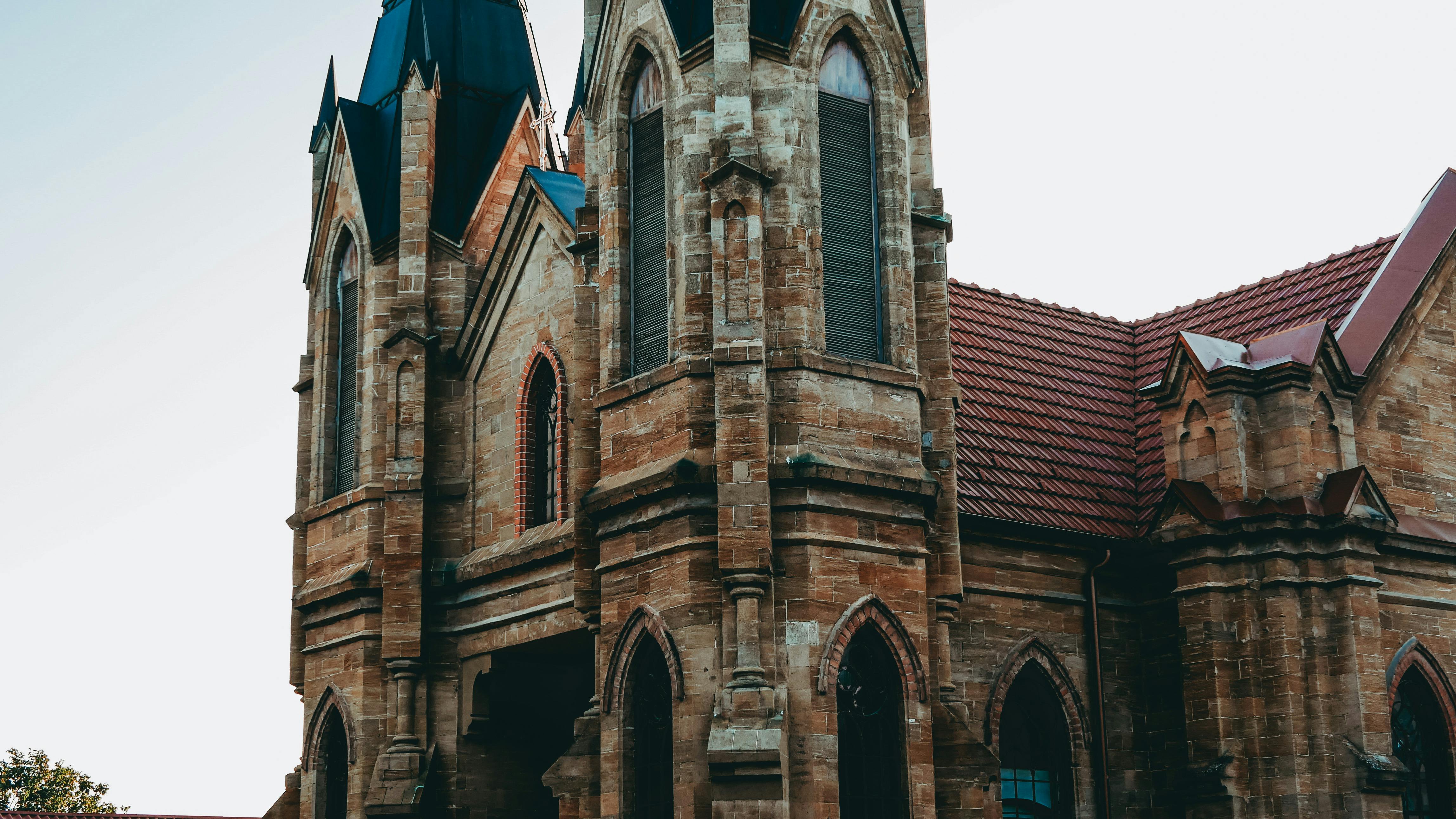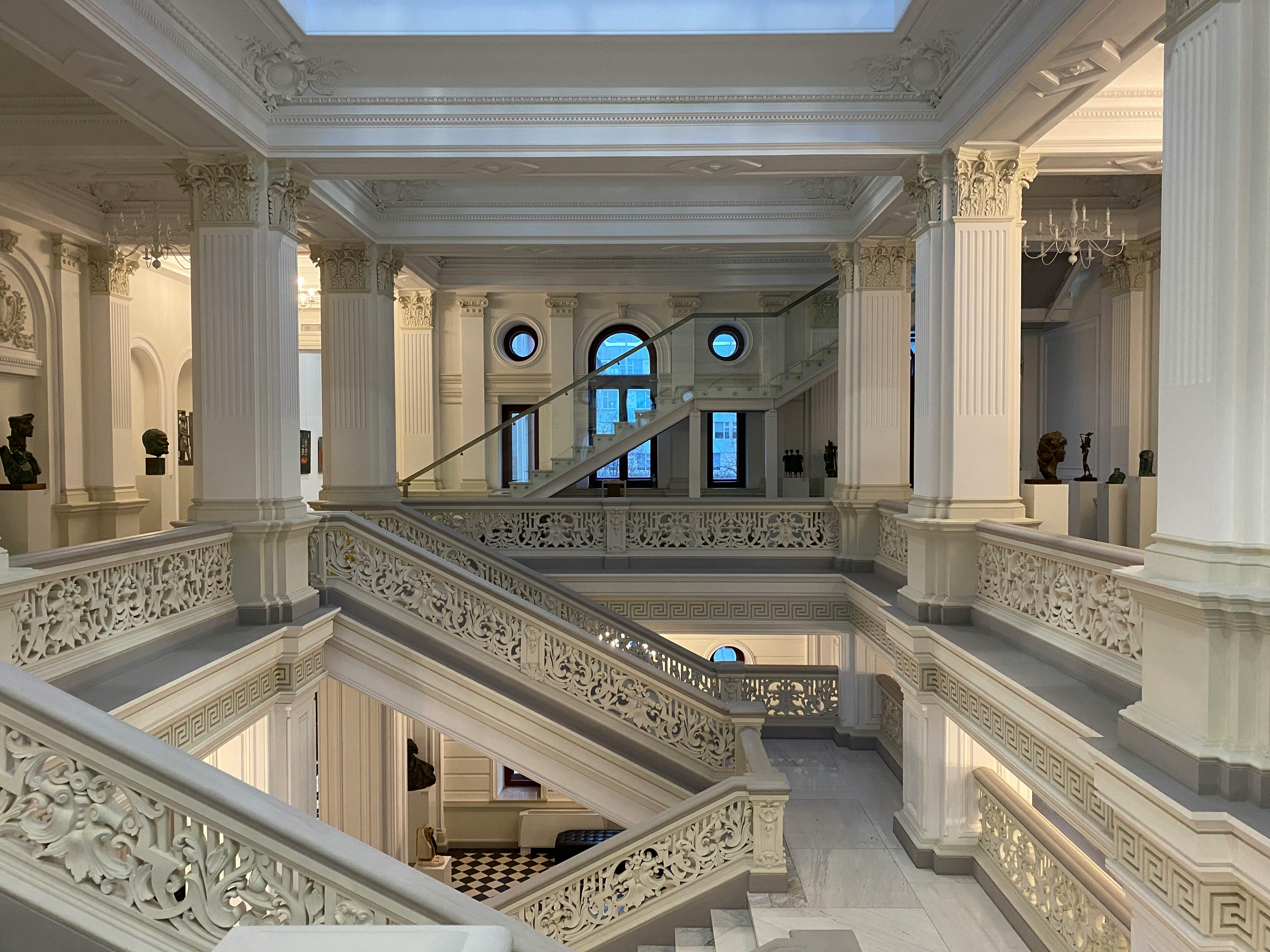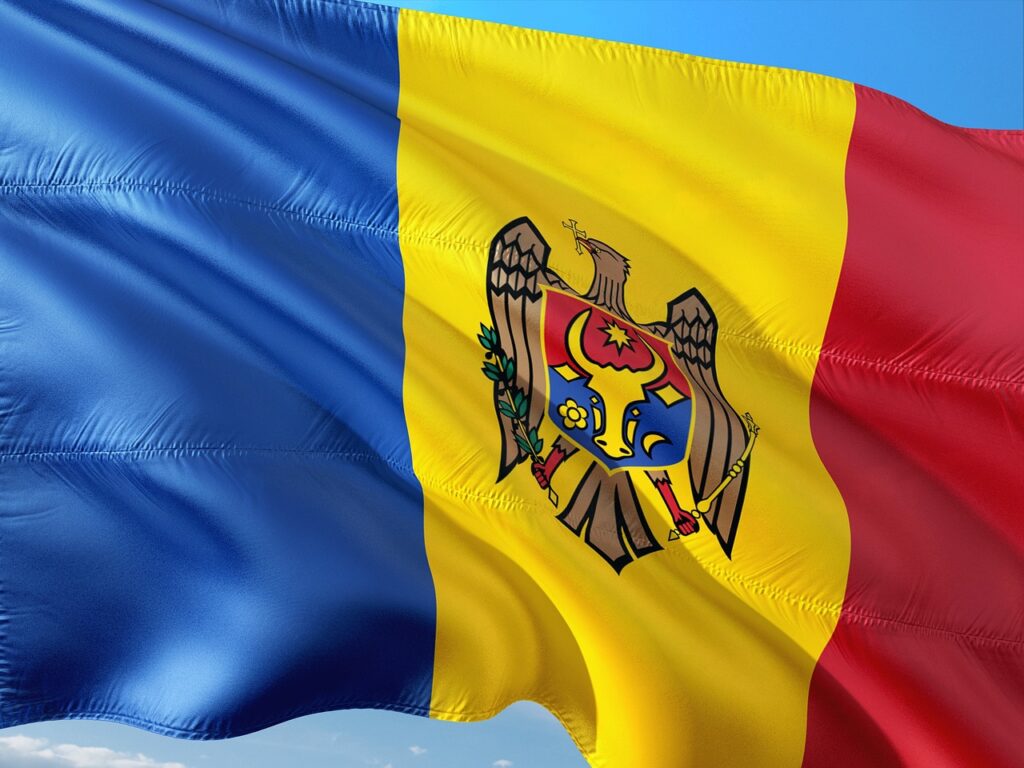Smack in the far corner of southeastern Europe is one of the best-kept secrets of the continent: Moldova. This tiny landlocked country squeezed between Romania and Ukraine is a treasure trove of ancient history, stunning natural beauty, and resilient culture.
Thus far in my travels, I’ve been a rather broke backpacker, and this promised some degree of affordability and authenticity with a mix of raw adventure opportunities. For a budget roughly equal to the price of a latte bought daily in Western Europe, I found myself on a journey to explore the uncharted territory of Moldova.
From the cobblestone streets of Chișinău to the hilly landscape of Moldovan countryside, I came to discover a nation beyond expectations. Its intricate past with Soviet rule, Ottoman influence, and medieval traditions is a tapestry of surprises.
Join me on my journey into the unknown: Moldova’s rough roads, great wine, and, above all, its friendly people. With stunning monasteries, pristine forests, and bustling markets, Moldova proved to be one heck of an unforgettable destination for the budget-conscious traveler.
In this blog, I share my experiences, tips, and stories from the road that help inspire other broke backpackers to step onto the relatively unknown and unexplored heart of Eastern Europe-get ready to discover the hidden gem that is Moldova.
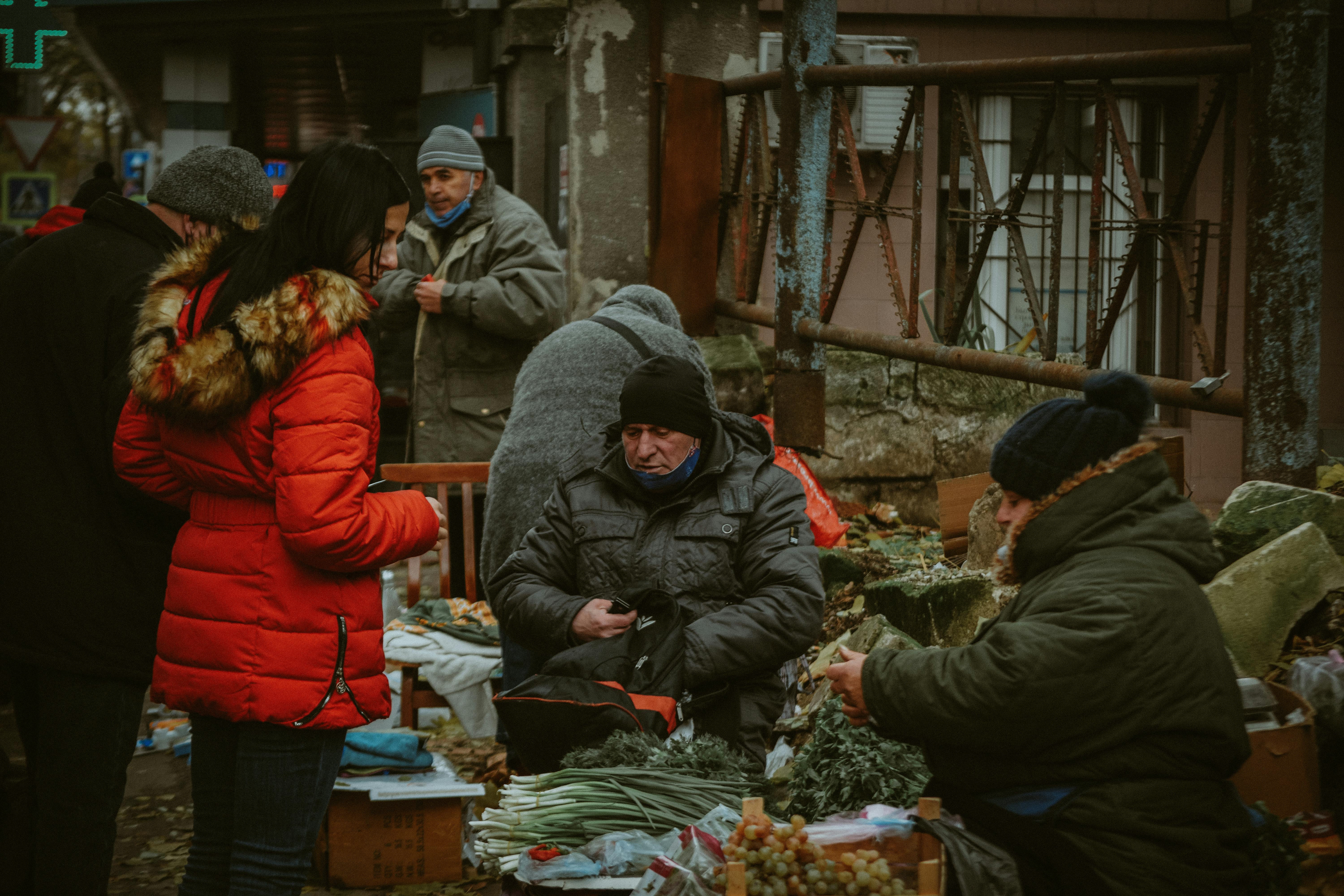
How to get there:
The most convenient route to Moldova is from Romania, with frequent buses and trains connecting major cities.
- Bucharest to Chișinău: Take bus 682 or 783 from Bucharest’s Autogara de Nord to the Romanian-Moldovan border (approx. 6 hours, $10-15). Cross the border on foot and continue by taxi or bus to Chișinău.
- Iași to Chișinău: Direct buses run daily from Iași’s Autogara Nord to Chișinău (approx. 4 hours, $5-10).
Moldova shares a long border with Ukraine, offering multiple entry points.
- Odessa to Chișinău: Take bus 576 or 577 from Odessa’s Central Bus Station to the Moldovan-Ukrainian border (approx. 4 hours, $5-10). Continue by taxi or bus to Chișinău.
- Chernivtsi to Soroca: Direct buses connect Chernivtsi’s Central Bus Station to Soroca, Moldova (approx. 2 hours, $3-5).
Although farther away, Bulgaria offers a scenic route to Moldova.
Sofia to Bucharest: Take a bus or train to Bucharest (approx. 7-10 hours, $20-30). Then, follow the Romania to Moldova instructions.
When to go:
Spring (March to May)
- Mild temperatures (15-20°C/59-68°F)
- Fewer tourists, making for a more authentic experience
- Wine festivals and Easter celebrations
- Budget-friendly accommodations and tour prices
Summer (June to August)
- Warm weather (25-30°C/77-86°F)
- Peak tourist season, with more expensive accommodations and tours
- Festivals like the National Wine Festival and Moldova’s Independence Day
- Outdoor activities like hiking and swimming in lakes and rivers
Autumn (September to November)
- Comfortable temperatures (10-20°C/50-68°F)
- Harvest season, with wine tastings and agricultural festivals
- Fewer tourists, resulting in lower prices
- Beautiful foliage and scenic landscapes
Winter (December to February)
- Cold temperatures (-5 to 5°C/23-41°F)
- Low season, with discounted accommodations and tours
- Christmas and New Year’s celebrations
- Indoor activities like museum visits and wine tastings
Special Events and Holidays
Christmas and New Year’s (December/January): Traditional festivities and decorations
Easter (April/May): Traditional celebrations and festivities
National Wine Festival (September): Wine tastings and live music
Moldova’s Independence Day (August 27th): Parades and cultural events
Best Itineraries:
3-Day Itinerary
Day 1: Chișinău
- Explore the city’s historic center, including the Stephen the Great Monument and the Nativity Cathedral
- Visit the National Museum of Ethnography and Natural History
- Enjoy traditional Moldovan cuisine and wine in the evening
Day 2: Orheiul Vechi
- Take a bus to Orheiul Vechi (approx. 1 hour, $2-3)
- Explore the ancient monastery and cave system
- Hike through the surrounding hills and forests
Day 3: Cricova Winery
- Visit Cricova Winery, one of Moldova’s largest wine cellars (approx. 30 minutes from Chișinău)
- Take a guided tour and sample some of Moldova’s famous wines
- Return to Chișinău for a farewell dinner
1-Week Itinerary
Day 1-2: Chișinău
- Explore the city’s historic center, museums, and markets
- Visit the nearby village of Văduleni for a traditional Moldovan lunch
Day 3-4: Orheiul Vechi
- Take a bus to Orheiul Vechi and explore the ancient monastery and cave system
- Hike through the surrounding hills and forests
Day 5: Soroca
- Take a bus to Soroca (approx. 3 hours, $5-10)
- Explore the medieval fortress and Danube River views
Day 6-7: Return to Chișinău
- Visit the Cricova Winery or other nearby attractions
- Enjoy a farewell dinner and traditional Moldovan music
2-Week Itinerary
Day 1-3: Chișinău
- Explore the city’s historic center, museums, and markets
- Visit nearby villages for traditional Moldovan cuisine and wine
Day 4-6: Orheiul Vechi and surrounding villages
- Take a bus to Orheiul Vechi and explore the ancient monastery and cave system
- Hike through the surrounding hills and forests
Day 7-8: Soroca and the Danube River
- Take a bus to Soroca and explore the medieval fortress
- Enjoy a boat tour on the Danube River
Day 9-10: Tiraspol (Transnistria)
- Take a bus to Tiraspol (approx. 2 hours, $5-10)
- Explore the breakaway region’s Soviet-era architecture and history
Day 11-14: Return to Chișinău and surrounding areas
- Visit the Cricova Winery or other nearby attractions
- Enjoy traditional Moldovan cuisine and wine
1-Month Itinerary
Week 1: Chișinău and surrounding areas
- Explore the city’s historic center, museums, and markets
- Visit nearby villages for traditional Moldovan cuisine and wine
Week 2: Orheiul Vechi and surrounding villages
- Take a bus to Orheiul Vechi and explore the ancient monastery and cave system
- Hike through the surrounding hills and forests
Week 3: Soroca, the Danube River, and Tiraspol
- Take a bus to Soroca and explore the medieval fortress
- Enjoy a boat tour on the Danube River
- Visit Tiraspol and explore the breakaway region’s Soviet-era architecture and history
Week 4: Southern Moldova and the wine country
Explore the scenic countryside and traditional villages
Visit the wine cellars of Cricova, Milestii Mici, or other nearby wineries
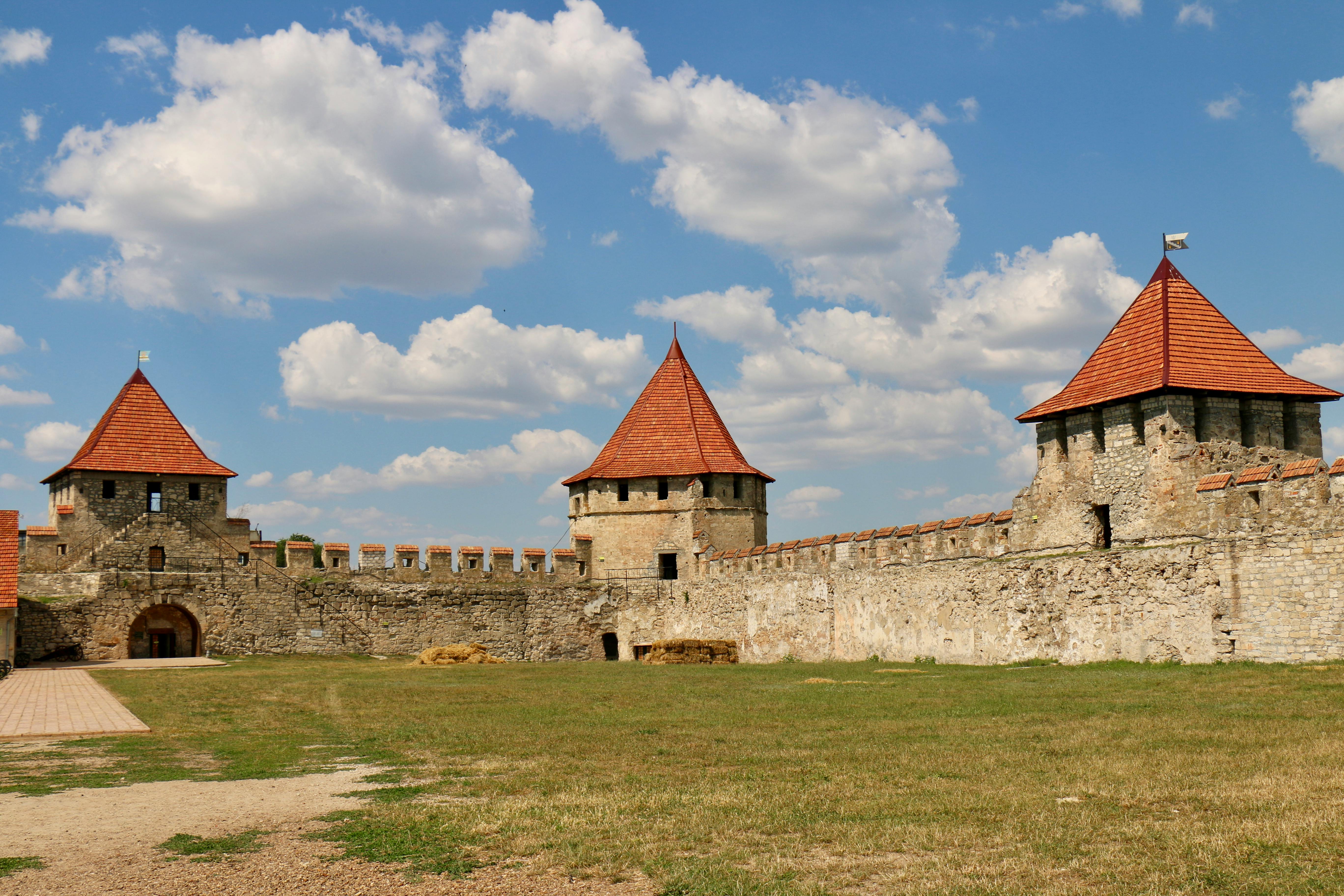
Transportation:
Bus Network
Moldova’s bus network connects major cities and rural areas.
- Autogara: Central bus stations in larger cities, offering schedules and ticket sales.
- Ruta: Private bus companies operating on fixed routes.
- Marshrutka: Minivans serving shorter routes, often departing when full.
Bus Routes and Schedules
- National routes: Connect major cities like Chișinău, Soroca, and Orheiul Vechi.
- International routes: Link Moldova to neighboring countries (Romania, Ukraine, Bulgaria).
- Schedules: Vary by route, but generally run frequently during peak hours.
Train Network
Moldova’s rail network is limited but convenient for longer journeys.
- CFM: State-owned railway company operating passenger trains.
- Routes: Connect Chișinău to major cities and border towns.
- Schedules: Less frequent than buses, but often more comfortable.
Taxis and Ride-hailing
- Taxis: Widely available, but ensure meter usage or agree on fares beforehand.
- Ride-hailing: Services like Bolt and Yandex.Taxi operate in larger cities.
Tips and Tricks
- Language: Many drivers and conductors speak Romanian or Russian; learn basic phrases.
- Cash: Local currency (MDL) is preferred; some drivers may accept euros or dollars.
- Safety: Use licensed taxis and ride-hailing services; avoid hitchhiking.
Fares and Costs
- Bus fares: $1-5 for short trips, $5-10 for longer routes.
- Train tickets: $5-20 for economy class, $20-50 for business class.
- Taxi fares: $5-10 for short trips, $10-20 for longer journeys.
Useful Apps and Resources
Moldova’s Transport Ministry: Official website for schedules and information.
Google Maps: Reliable navigation and route planning.
Moovit: Public transportation schedules and routes.
Top things to do:
Chișinău
- Explore the historic center: Stephen the Great Monument, Nativity Cathedral, and City Hall
- Visit museums: National Museum of Ethnography and Natural History, National Museum of Art
- Wander through parks: Stephen the Great Park, Alunelul Park
- Enjoy local markets: Central Market, Jumbo Market
- Visit the eerie abandoned buildings and Soviet-era architecture
- Discover the Chișinău Botanical Garden
- Explore the historic Train Station and Railway Museum
Orheiul Vechi
- Explore the ancient monastery and cave system
- Hike through the surrounding hills and forests
- Visit the Orheiul Vechi Archaeological Complex
- Enjoy traditional Moldovan cuisine and wine
- Explore the nearby village of Trebujeni
- Visit the Orheiul Vechi Winery
Soroca
- Explore the medieval fortress and Danube River views
- Visit the Soroca Fort
- Take a boat tour on the Danube River
- Enjoy traditional Moldovan cuisine and wine
- Explore the nearby village of Căinari
- Visit the Soroca Museum of History and Ethnography
Tiraspol (Transnistria)
- Explore the breakaway region’s Soviet-era architecture and history
- Visit the Tiraspol Fortress
- See the Lenin Monument and Soviet-era monuments
- Enjoy traditional Russian cuisine
- Visit the Tiraspol Museum of History and Regional Studies
- Explore the nearby city of Bender
Wine Country
- Visit Cricova Winery, Milestii Mici, or other nearby wineries
- Take a wine tour and sample some of Moldova’s famous wines
- Explore the scenic countryside and traditional villages
- Visit the Purcari Winery and Vineyard
- Enjoy wine tastings at the Château Vartely Winery
Northern Moldova
- Visit the medieval town of Soroca
- Explore the historic city of Bălți
- Enjoy outdoor activities: hiking, fishing, and camping
- Visit the Rîșcani District and its scenic countryside
- Explore the historic city of Edineț
Southern Moldova
- Visit the historic city of Cahul
- Explore the scenic countryside and traditional villages
- Enjoy outdoor activities: hiking, birdwatching, and fishing
- Visit the Vulcanesti District and its scenic countryside
- Explore the historic city of Cimislia
Off the Beaten Path
Explore the Saharna Monastery and its scenic views
Visit the abandoned city of Văduleni
Explore the scenic countryside and traditional villages
Attend a traditional Moldovan wedding or festival
Visit the Tipova Monastery and its stunning natural surroundings
Food:
Moldovan food is a luscious blend of Eastern European and Soviet gastronomic influence: a perfect manifestation of Moldova’s rich history and cultural heritage. As a poor backpacker, I was delighted to know that Moldova’s food scene hosts a wide array of delicious, affordable, and authentic dining experiences.
Moldovan cuisine is all about hearty meat dishes, fresh vegetables, and fragrant herbs. The most famous dish is mamaliga, a kind of porridge made with cornmeal, and very often it is served with cheese, sour cream, and meat. Other representative dishes are sarmale, which is cabbage rolls filled with ground meat and rice, usually served with polenta and sour cream.
This small country in Eastern Europe awakens the senses, from the bustling markets to the colourful Chișinău’s Central Market. The colours come alive, the aromas are tempting, and the melodic conversations in passing fill the air as it showcases their freshest produce from fleshy fruits and vegetables to artisanal cheeses and cured meats. These markets are a foodie paradise.
Street food in Moldova is a treat because different sellers sell tasty delights: Plăcintă, flaky pastry filled with cheese, meat, or vegetables. Other favorite street foods are Shawarma – the legacy of Soviet times, that normally consists of well-marinated meat served on a crispy bun and fresh veggies.
The wine of Moldova is highly regarded as one of the best quality wines at very reasonable prices. The ancient winemaking traditions, along with rich soils of Moldova, give it a wide range of wines, starting from crisp whites to rich reds. Equally not to be missed is the opportunity to taste some of the best vintages of the country either at local wineries or at the wine bars.
Mealtimes are sacred in Moldova, and hospitality is paramount. If invited to share a meal, then get ready for spirited conversations, portions generous to a fault, and warm toasts. It is customary to bring along a small gift to show your host appreciation for the hospitality.
Each region of Moldova has its specific specialties using and showing local ingredients and traditions. North: rich meat stews and soups; south: fresh fish from the Danube.
From traditional dishes to local markets and street food, it is a food treasure that holds flavors, traditions, and hospitality all together in one place. When starting the Moldovan journey, remember to come with an appetite and leave with a full heart and an empty stomach.
Now, let’s go on this gastronomical journey of Moldova, the Eastern European enchantress, and taste her flavors!
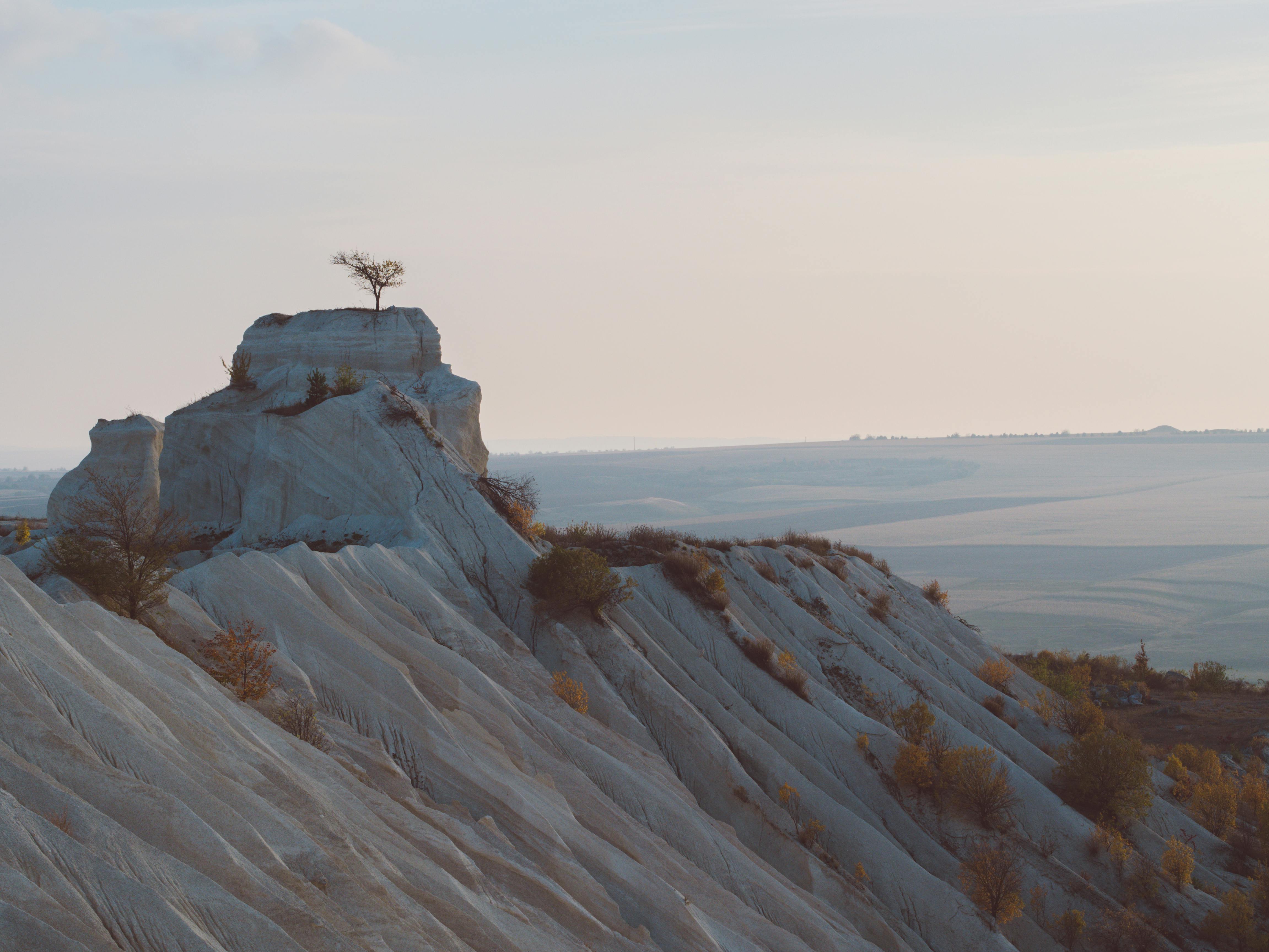
Culture:
Moldova boasts of an ever-vibrant cultural landscape with its entangled history, geographical location, and Soviet heritage. This has handed over such a rich combination of traditions, customs, and influences to Moldova as its exceptional identity.
At the core of Moldovan culture is hospitality and respect for the community. Family ties are very important, and over meals, lots of bonding occurs as stories are told. Guests are treated with the highest respect, receiving traditional bread, salt, and wine upon their arrival. This has earned the people of Moldova a reputation throughout Europe as some of the friendliest in the continent.
One can hardly overestimate the input of folk traditions into the cultural heritage of Moldova. Rich artisanal legacy-from colorful embroidery and intricate wood carvings to handmade ceramics-is far from being exhaustive. The nation’s history, mythology, and symbolism crop up in bright patterns and designs, which adorn traditional clothes and textiles.
The musical and dance traditions are of great importance in Moldovan culture; folk ensembles and orchestras performed extended routines that were important to the expression of ethnic diversity. The traditional folk dance, named “Hora,” is a frolicsome celebration of the community and unity of people, often performed at weddings and festivals.
In Moldova, Soviet culture is deep-rooted, from architectural monuments of socialist realism down to literature and finally arts. Monuments and statues dedicated to Lenin and other Soviet leaders still dot the landscape, reminders of complex history.
The state language is Moldovan, a Romance language closely related to Romanian, but Russian, Ukrainian, and other minority languages are also widely spoken. This linguistic diversity reflects the country’s strategic location at the crossroads of Europe and Asia.
The leading religion in Moldova is Orthodox Christianity, while the Orthodox Church shapes extensively the spiritual and cultural life of the country. Ancient monasteries, elaborately decorated churches, and icons revered throughout the country describe a very devout nation.
Cultural festivals in Moldova are really an expression of its heritage. In respect to the wine-making traditions, the country holds a National Wine Festival every year in Chișinău. During the Moldova International Music Festival, both local and international artists perform their classical, folk, and contemporary music.
There is no division between tradition and modernity within Moldova. It is this very rich cultural heritage that contemporary artists, writers, and musicians take as the great inspiration necessary for their creativity, adding fresh perspective and innovations to it.
As you travel through the cultural landscape of Moldova, you will get to proud people eager to share with you their history, traditions, and self-expression. The cultural tissue of Moldova is a very energetic expression of the strength and ability of its nation.
Feel the great hospitality of Moldovans and get introduced to the treasures of this Eastern European pearl.
Accommodations:
Being the poor backpacker that I am, I find that the most quintessential Moldovan culture and hospitality can be found in its hostels, which are more eclectic than anything. Forget fancy amenities and hefty price tags; the cheaper the hostels, the crazier-and more memorable-experiences that come along with it.
In Moldova, hostels are not just places where you rest your head. They are social hubs, cultural melting pots, and a place to start an adventure. Book the cheapest available options and, more often than not, you will find yourself plunged into the middle of fellow travelers, zealous staff members, and one pinch of chaos.
These low-budget hostels may not scream luxury, but they make up in character, charm, and a deep connection with the local scene. You might find yourself sharing a room with a Moldovan family’s ancestral home, complete with quirky decor and homemade breakfasts.
Often, the more budget-friendly hostels are the ones that have the most interesting tales to narrate. You may come across a hostel that used to be an apartment from the time of the Soviet Union, complete with retro furniture and wall hangings; or you could also end up in that rustic village homestay, surrounded by rolling hills and warm-hearted locals.
For Moldova, budget hostels are not uncommon to have their own secret surprises in store. Maybe traditional dinners thrown together by your hosts and eaten with fellow travelers, or a secret bar behind the hostel’s walls serving craft beers and upbeat music.
So to really experience the culture of hostels in Moldova, forget the guidebooks and the websites that should make booking easy. Instead, just arrive in town, ask for recommendations, and take the cheapest ones. That often requires flexibility and spontaneity, but all in all, it pays off.
These hostels aren’t just a part of Moldova’s culture but a mold of its spirit-warm, friendly, and fantastically unpredictable. Don’t be afraid of the unknown; book in the cheapies and find yourself uncovering gems, making memories that will really last, and absolutely falling in love with this astonishing Eastern European nation.
Staying in hostels in Moldova means more than having a roof over your head-it’s a way to be plugged into the very heart and soul of this country. Take a chance, book that quirky hostel, and get set for the time of your life.
As you delve into Moldova’s hostel scene, remember, the best experiences always await on the unbeaten track. Don’t be afraid to be a little daring, interact with the locals, and give in to the beauty of uncertainty. It is in the cheapest of this enchanted country’s hostels where the secrets of an unforgettable journey await.
Nightlife:
When the sun goes down, Moldova ushers in a kind of fabled fun nightlife-a nightscape that mingles the country’s folklore with touches of modernity. Bars and clubs stand on their own, mingled with wine cellars and underground live music venues. Whatever taste or style, Moldovan nightlife needs to have something to offer.
The nightlife pulses strong in Chișinău, full of revelers on the streets, spilling out from bars and clubs into the air full of laughter and music. From hipster cocktail bars to rustic wine taverns, options are endless.
Moldova’s nightlife is more than party time, though. Here, it is deep insight into culture: traditional music and dances will be joined in perfect harmony with modern beats. You may turn a corner and find yourself face to face with an exuberant folk band playing in a wine cellar or some DJ mixing electronic tunes in some Soviet-era warehouse.
Besides Chișinău, Moldova’s nightlife is unique in the country’s small towns and villages. Countryside Traditional festivals and celebrations can really be stretched into night hours by feasting, music, and dancing. You may find yourself swept up in a joyful Hora dance circle or sharing shots of homemade palinca with newfound friends.
nightlife in Moldova is also closely related to wine culture. There will be wine bars and cellars offering tastings of flights of renowned vintages. You can even stumble upon some hidden, small winery where the owner tells you about family traditions and wine secrets over a glass of wine.
Be prepared for spontaneity, flexibility when you begin to go out in Moldova. Plans can change in an instant, and often, your best experiences will be found through the unexpected encounter. Don’t be afraid to strike up conversations with locals who are more than eager to share culture and hospitality.
Moldova’s nightlife is a reflection of its people: warm, friendly, and full of life. From party animal to culture lover, Moldova has something for every night that will fit the taste of all. So, let the Moldovan nocturnal charm drown you and the rhythm of this enchanting country lead into the night. Nightlife in this country is blessed with a unique combination of tradition and modernity, and that makes for an experience that one will hardly ever forget.
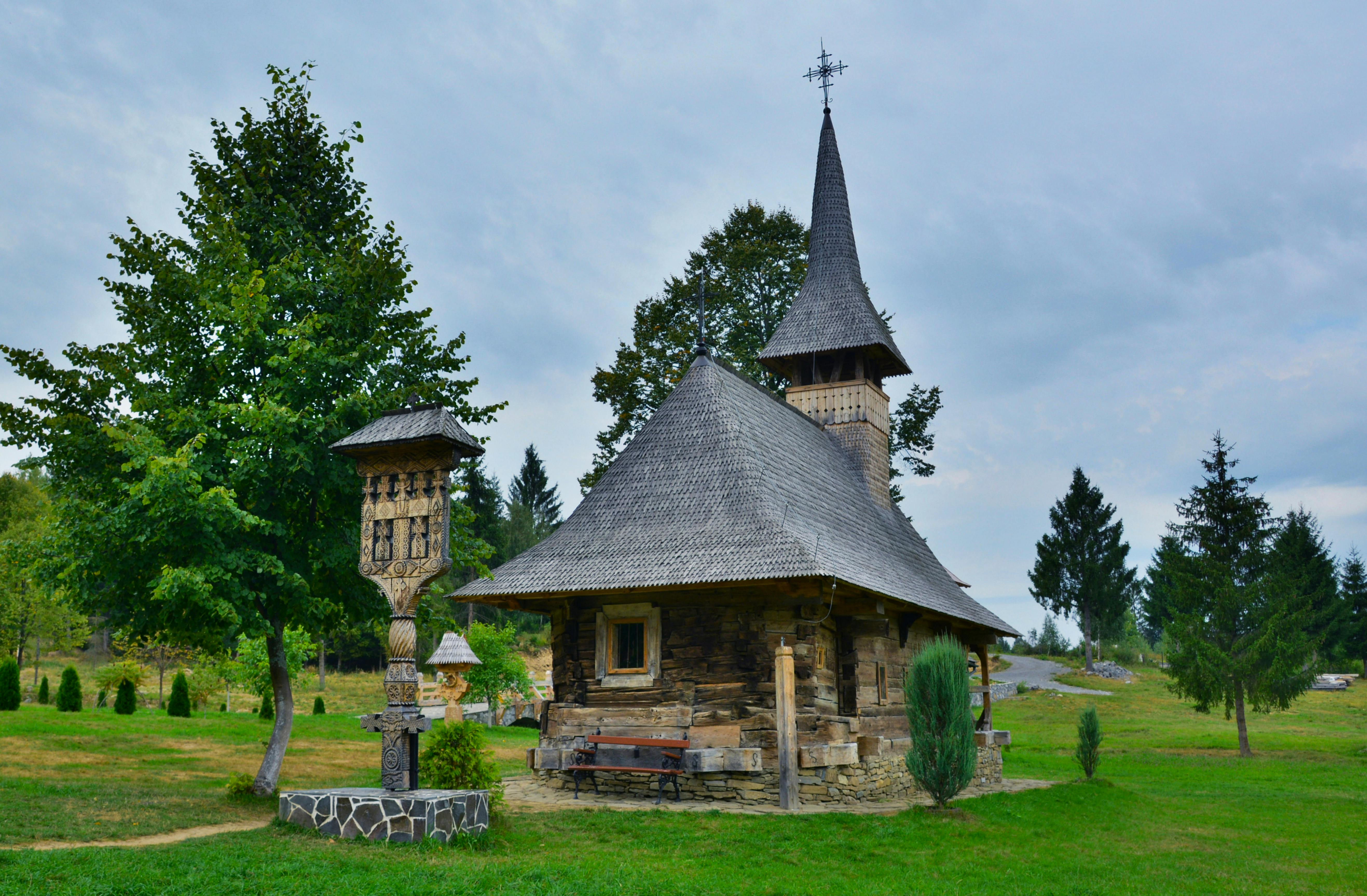
Backpacking Moldova costs:
Daily Budget
- Accommodation: $5-10 (hostel dorm or shared room)
- Food: $3-5 (street food, markets, and traditional restaurants)
- Transportation: $1-3 (local buses, marshrutkas, and walking)
- Attractions: $2-5 (museums, historical sites, and cultural events)
- Miscellaneous: $2-5 (sundries, snacks, and unexpected expenses)
Total daily budget: $13-28
Weekly Budget
- Accommodation: $35-70 (hostel dorm or shared room for 7 nights)
- Food: $21-35 (street food, markets, and traditional restaurants)
- Transportation: $7-21 (local buses, marshrutkas, and occasional long-distance buses)
- Attractions: $14-35 (museums, historical sites, and cultural events)
- Miscellaneous: $14-35 (sundries, snacks, and unexpected expenses)
Total weekly budget: $91-206
Conclusion:
My Moldova backpacking on a broke has taught me, time and over again, that it’s not just about the sights, it’s about traveling into the unknown. With its rich history, extremely vibrant culture, and unbreakable citizens, Moldova is itself proof of beauty in traveling off the beaten track.
With a budget of $13-28 per day, I found Moldova-in its own world-to be more than accessible to even the most impoverished backpacker. From the winding streets of Chișinău to the ancient monasteries of Orheiul Vechi, it seemed like anything could turn into an experience reminding me that often, the best travel memories come from what is least expected.
But for all its rough-around-the-edges charms, Moldova remains a repository of soviet-era relics and warm-hearted denizens that have permanently tattooed their way into my heart. This tiny Eastern European nation made me learn the sobering truth: it is not in luxury or comfort that travel finds its definition, but rather in embracing the capricious and finding beauty in the unpolished.
If you’re another broke backpacker who’s looking for a somewhat unconventional adventure, Moldova awaits you. Not expensive, hospitable, with charm not yet tapped-what more could the most skeptical traveler need?.
Travel light, travel flexible, and start your Moldovan odyssey. Let the country’s zigzag roads, villages, and hospitable locals take you on a journey worth taking.
